Discover the various types of yarn prices in this informative guide, as we delve into the factors influencing cost and help you make informed decisions for your knitting and crochet projects.
Are you a yarn enthusiast who can’t resist the temptation of new skeins? Do you find yourself constantly browsing through online stores, comparing prices and trying to figure out which type of yarn offers the best value for your money? If so, then you’re in luck! Today we’ll be discussing the different types of yarn prices and what factors can affect them. From budget-friendly acrylics to luxurious silks, we’ll explore everything you need to know about buying yarn without breaking the bank.
So grab your hook or needles, settle in with a cup of tea, and let’s dive into the world of yarn pricing!
Natural Fiber Yarn Prices
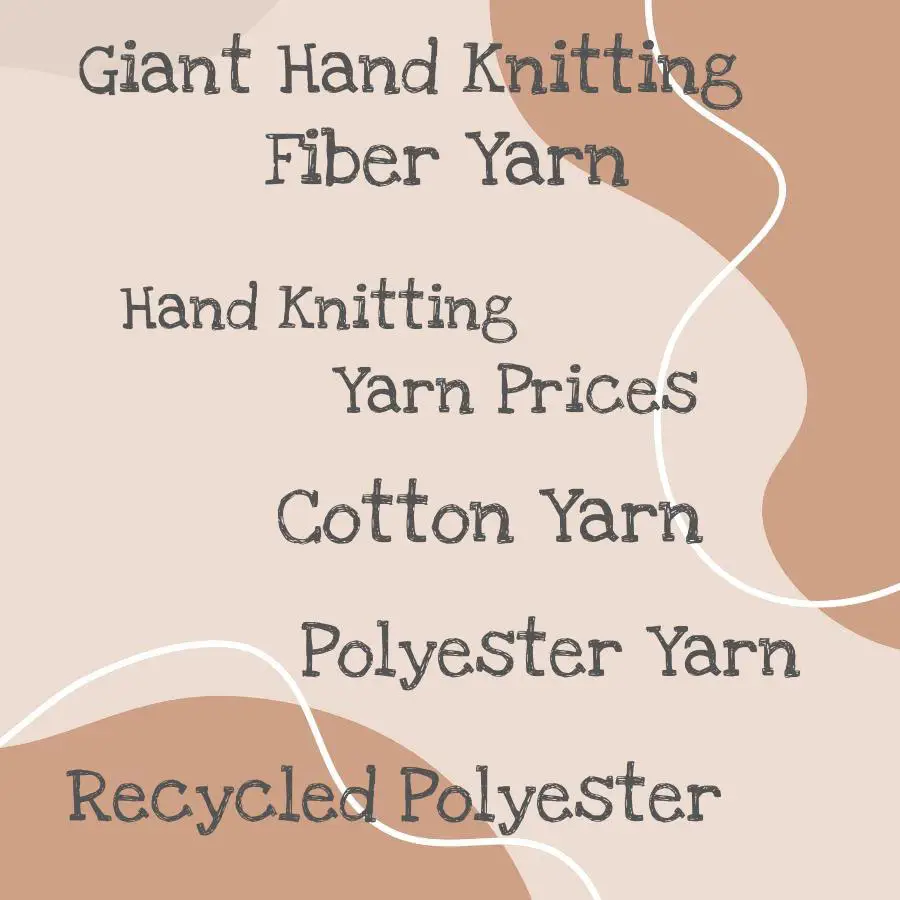
When it comes to natural fiber yarns, the price can vary greatly depending on the type of fiber. Wool is one of the most popular natural fibers used in knitting and crochet projects, and its price can range from affordable to quite expensive depending on factors such as breed, quality, and processing method.
Alpaca yarn is another luxurious option that tends to be more expensive due to its softness and warmth.
Cotton yarn prices are generally lower than wool or alpaca since cotton is a widely available crop with many different varieties. However, organic cotton or specialty blends may come at a higher cost.
Other natural fibers like silk or cashmere tend to be among the priciest options due to their rarity and high demand for luxury items.
Synthetic Fiber Yarn Prices
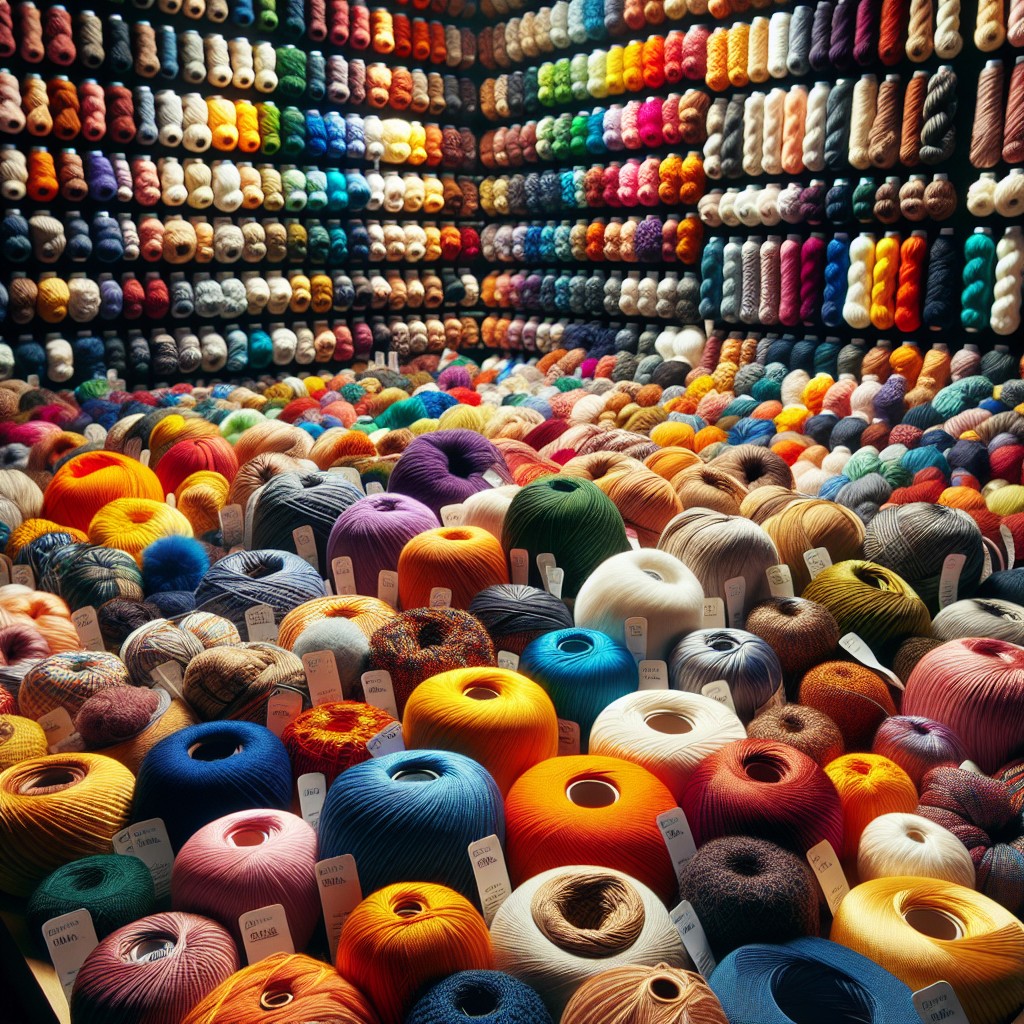
These yarns are made from man-made materials such as acrylic, nylon, and polyester. They come in a wide range of colors and textures that mimic natural fibers like wool or cotton.
Acrylic is one of the most popular synthetic fibers used in yarn production due to its affordability and versatility. It’s easy to care for, machine washable, and comes in various weights suitable for different projects.
Nylon is another common synthetic fiber used in blends with other natural or artificial fibers to add strength and durability while reducing cost.
Polyester is also widely used because it’s lightweight yet strong enough to withstand wear-and-tear over time. It’s often blended with other materials like cotton or wool to create softness without sacrificing durability.
Blended Yarn Prices
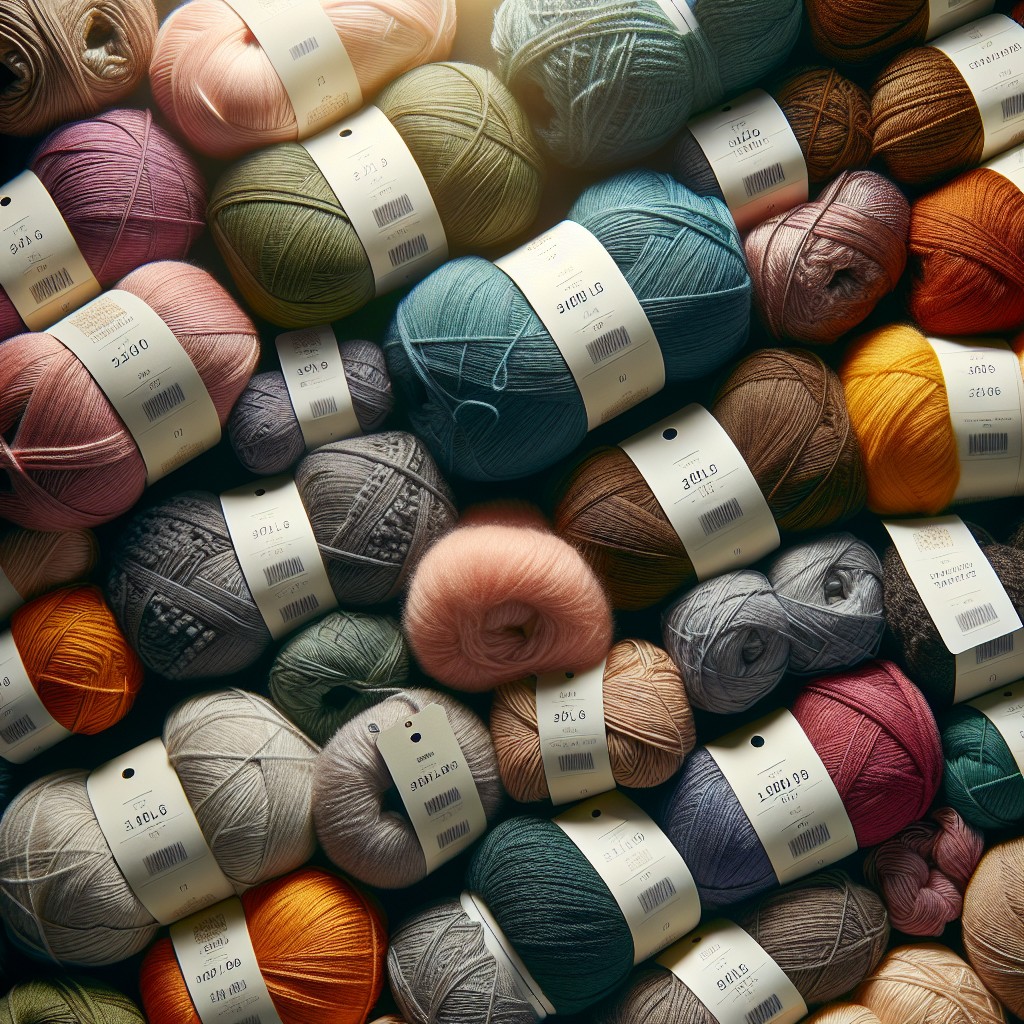
By combining different fibers, blended yarns can provide unique textures and colors that cannot be achieved with single-fiber options. However, this variety often comes at a higher price point than traditional acrylic or wool yarns.
The cost of blended yarn depends on several factors such as the type and quality of fibers used in the blend. For example, merino wool blends tend to be more expensive than those made from synthetic materials like nylon or polyester.
Another factor that affects blended yarn prices is its production process; some blends require more time and effort to produce which increases their cost compared to others.
When shopping for blended yarns it’s important to consider your budget while also keeping in mind what you want out of your project.
Bulk Acrylic Thread Yarn Prices
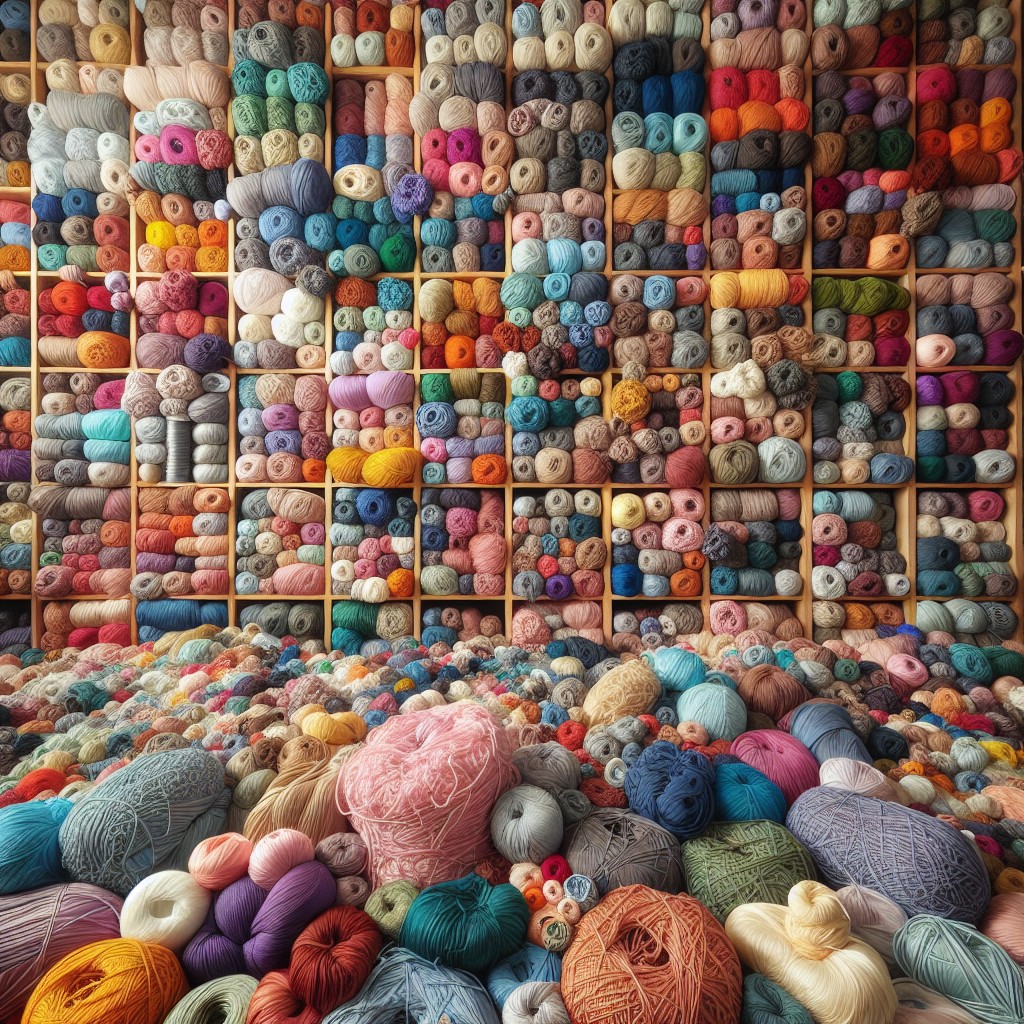
Acrylic yarn is made from synthetic fibers, which makes it durable and easy to care for. It’s also available in a wide range of colors, making it perfect for creating vibrant projects that stand out.
When shopping for bulk acrylic thread yarn, you’ll find that prices can vary depending on the brand and quality of the product. Some brands offer budget-friendly options that are great for beginners or those on a tight budget, while others offer higher-end products with more luxurious textures.
It’s important to keep in mind that while bulk acrylic thread may be cheaper than other types of yarns such as wool or silk, this doesn’t necessarily mean it’s lower quality. Many high-quality acrylic threads are available at affordable prices if you know where to look.
Polyester Yarn Prices
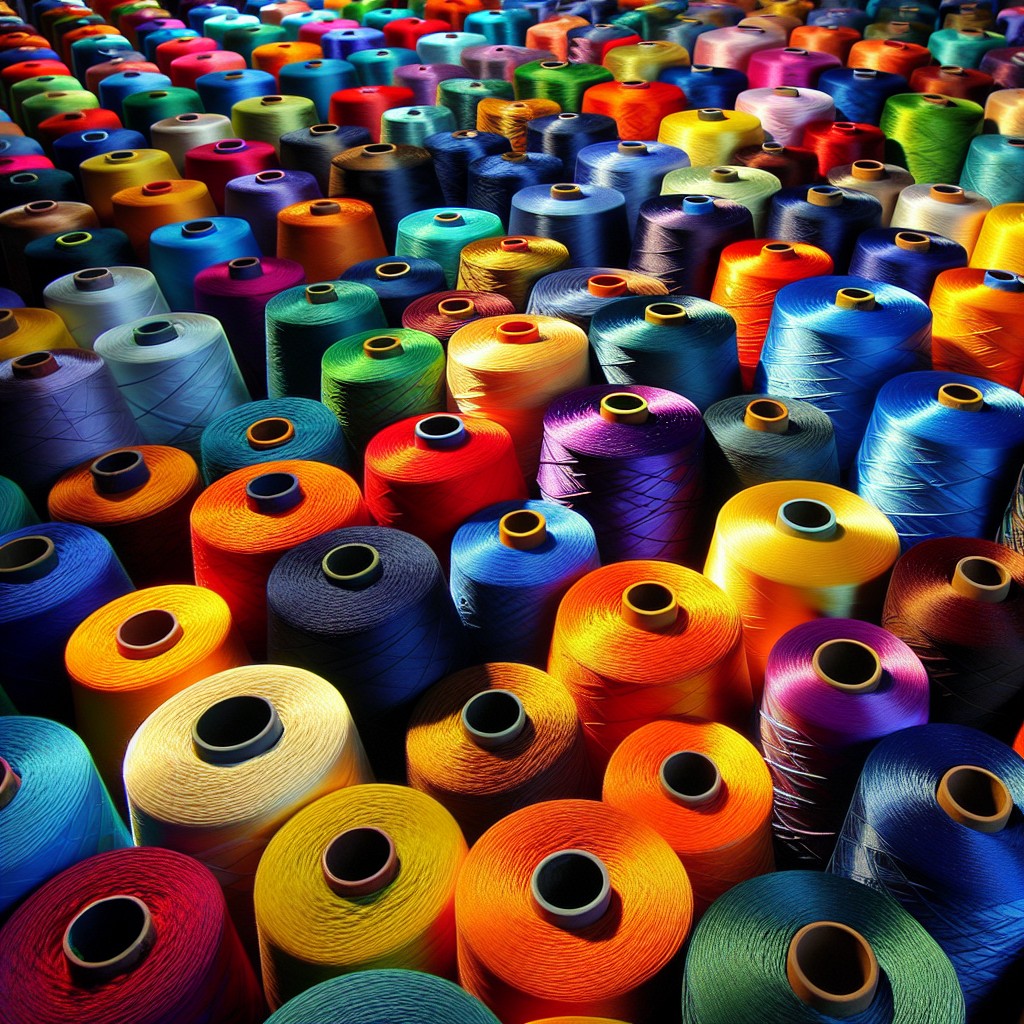
It’s made from synthetic fibers that are derived from petroleum products and can be found in a wide range of colors and textures. Polyester yarn prices vary depending on the brand, quality, weight (thickness), length per skein or ball of yarn.
Generally speaking, polyester yarn is one of the most budget-friendly options available on the market today. You can find it at your local craft store or online retailer for as little as $1 per skein/ball up to $10+ for higher-end brands with more luxurious finishes like metallic threads or glitter accents.
While some may argue that natural fiber options such as wool or cotton offer superior quality over polyester blends – there’s no denying that this type of synthetic fiber has come a long way in recent years when it comes to softness and texture. Plus if you’re working on larger projects like blankets where cost-effectiveness matters more than luxury feel then opting for cheaper materials might be just what you need!
Hand Knitting Cotton Yarn Prices
Hand knitting cotton yarn prices can vary depending on the quality of the fiber used, as well as other factors such as brand name and color availability.
When shopping for hand knitting cotton yarns, it’s important to consider your budget while also keeping in mind that higher-priced options may offer better quality fibers or more vibrant colors. Some brands specialize in organic or fair-trade cottons which can be pricier but are often worth the investment if you’re looking for sustainable materials.
In general, hand-knitting cotton yarn prices range from around $3-$10 per skein depending on weight (thickness) and yardage. Thicker weights like worsted tend to cost more than lighter weights like sport or fingering due to their larger size.
Recycled Polyester Yarn Prices
Made from post-consumer plastic bottles and other waste materials, this type of yarn helps reduce the amount of plastic in landfills while also conserving energy and resources. Recycled polyester yarn prices can vary depending on the brand and quality, but they are generally comparable to regular polyester or acrylic options.
One thing to keep in mind when shopping for recycled polyester yarn is that not all brands are created equal. Some may use a higher percentage of recycled materials than others or have more sustainable production processes overall.
It’s worth doing some research before making your purchase to ensure you’re getting the most environmentally friendly option possible.
Giant Hand Knitting Yarn Prices
However, this type of yarn can come with a higher price tag than traditional weights due to the amount of material required for each skein. The cost per yard or meter may be lower compared to other types of specialty yarns but keep in mind that you’ll need more yards/meters for your project.
When shopping for giant hand knitting yarn, it’s essential first to determine how much you’ll need based on your pattern or project idea. This will help you calculate the total cost and ensure that you don’t overspend on unnecessary skeins.
Some factors influencing giant hand knitting prices include fiber content (natural fibers tend to be pricier), brand reputation (well-known brands often charge more), and production methods (hand-spun vs machine-made). It’s also worth noting that some retailers offer discounts when purchasing multiple skeins at once or during seasonal sales events.
Polyester Cotton Yarn Prices
This type of yarn is made by blending polyester fibers with cotton, resulting in a soft yet sturdy material that’s perfect for creating garments, accessories, and home decor items.
When it comes to polyester cotton yarn prices, you can expect them to be slightly higher than pure acrylic or synthetic fiber options but still relatively affordable compared to luxury materials like silk or cashmere. The cost will depend on the brand and quality of the yarn as well as where you purchase it from.
If you’re looking for budget-friendly options without compromising on quality, consider buying bulk quantities online or during sales events at your local craft store. You can also save money by opting for smaller skeins if your project doesn’t require much yardage.
Polyester cotton blend yarn offers excellent value for money while providing versatility in terms of texture and color choices.
Viscose Nylon Yarn Prices
This blend of natural and synthetic fibers offers excellent drape, softness, and durability. Viscose is made from wood pulp or cotton linters while nylon is a type of plastic fiber derived from petroleum products.
The cost of viscose nylon yarn can vary depending on several factors such as brand reputation, quality level (premium vs budget), weight per skein/ball/hank (grams/ounces), color range availability among others.
Generally speaking though it’s not the cheapest option out there but it’s also not the most expensive one either. You can expect to pay around $5-$10 per 50g ball/skein/hank which makes it an affordable choice for many knitters and crocheters who want to create garments with good drape or accessories like shawls that require some elasticity in their fabric.
Ice Silk Textile Yarn Prices
It’s made from a blend of natural and synthetic fibers, which gives it the softness and breathability of cotton with the durability and sheen of polyester. Ice silk textile yarn is perfect for summer garments due to its moisture-wicking properties, making it an excellent choice for those hot days when you want to stay cool.
When it comes to ice silk textile yarn prices, they can vary depending on several factors such as brand name, weight per skein or ball (usually measured in grams), fiber content percentage ratio (natural vs synthetic), dyeing process used during manufacturing among others.
Generally speaking though, ice silk textile yarn tends to be more expensive than other types due to its unique qualities.
Chenille Yarn Prices
However, this type of yarn can be more expensive than other options on the market. Chenille yarn prices vary depending on several factors such as the fiber content, weight, and brand.
For example, chenille made from natural fibers like cotton or silk tends to be pricier than synthetic blends. Thicker weights of chenille may cost more per skein compared to thinner weights.
When shopping for chenille yarns online or in-store it’s important to compare prices across different brands and retailers before making a purchase. Some stores may offer discounts or sales that could help you save money while still getting high-quality materials for your projects.
Chunky Yarn Prices for Blankets
The thick texture of chunky yarn creates a warm and snuggly blanket that’s perfect for curling up with on chilly evenings. But what about the price? Chunky yarn can be more expensive than other types of yarn due to its thickness and weight.
When shopping for chunky yarn, you’ll want to consider the fiber content as well as the weight. Merino wool is a popular choice for chunky blankets because it’s soft, warm, and durable.
However, merino wool can also be quite pricey compared to synthetic fibers like acrylic or polyester.
If you’re looking to make a budget-friendly chunky blanket without sacrificing quality or warmth, consider using an acrylic blend instead of pure merino wool. Acrylic blends are often less expensive but still offer many benefits such as durability and easy care.
Dyed Yarn Prices
However, the price of dyed yarn can vary greatly depending on several factors. The type of fiber used in the yarn can affect its cost, with natural fibers like wool and silk generally being more expensive than synthetic options like acrylic or polyester.
The dyeing process itself also plays a role in determining the final price of dyed yarn. Hand-dyed skeins are often more expensive than commercially produced ones due to their unique nature and labor-intensive production methods.
When shopping for dyed yarn, it’s important to consider your budget as well as your project needs. If you’re working on a large project that requires multiple skeins of one colorway, opting for cheaper commercially produced options may be more practical.
On the other hand, if you’re looking to create something truly special or want to support small independent businesses that specialize in hand-dyeing techniques then investing in higher-priced artisanal products might be worth considering.
Filament Yarn Prices
These types of yarns tend to be very strong and durable, making them ideal for projects that require a lot of wear and tear. However, they can also be more expensive than other types of yarn due to the manufacturing process involved in creating them.
When it comes to filament yarn prices, you’ll find that they vary depending on the fiber used and the quality of the product. For example, silk filament yarn is often considered one of the most luxurious options available but can come with a higher price tag compared to synthetic filaments like nylon or polyester.
If you’re looking for an affordable option when it comes to filament yarns, consider purchasing blends or mixed-fiber options which combine natural fibers like wool or cotton with synthetic filaments such as acrylic or nylon. This way you get both durability and affordability without sacrificing quality.
Yarn Prices for Knitting Machines
Yarn prices for knitting machines can vary depending on the type of machine and the thickness and quality of the yarn. Some machines require specific types or weights of yarn, while others can handle a wider range.
When shopping for machine-knitting yarns, it’s important to consider factors such as fiber content, ply (the number of strands twisted together), weight (measured in grams per meter or ounces per yard), and gauge (the number of stitches per inch). These factors will affect both the price and performance of your chosen yarn.
Some popular options for machine-knitting include acrylic blends with wool or nylon for durability; cotton blends with polyester to reduce shrinkage; silk blends for luxurious drape; and bulky wools or chenille fibers that create plush textures. Prices may also vary based on whether you purchase cones versus skeins/balls – cones tend to be more cost-effective but require winding before use.
Ultimately, finding affordable yet high-quality knitting-machine-friendly-yarn is about striking a balance between your budget constraints without compromising on quality. With so many options available today online & offline stores alike- there’s no reason why anyone should have trouble finding their perfect match!
FAQ
What type of yarn is expensive?
Answer: Vicuña yarn is expensive and considered the most expensive wool in the world, costing from $400 to $600 per kilo of unprocessed fiber.
What is the price range of yarn?
The price range of yarn is typically between $5 and $10.
What are the 3 major yarn categories?
The 3 major yarn categories are Animal Fibers, Plant Fibers, and Synthetic Fibers.
What are the different categories of yarn?
The different categories of yarn are lace (0), super fine (1), fine (2), light (3), medium (4), bulky (5), super bulky (6), and jumbo (7).
Which luxury yarns tend to be the most costly?
Answer: The most costly luxury yarns tend to be vicuña, qiviut, and guanaco.
How do yarn material and quality affect its pricing?
Yarn pricing is affected by material and quality as different materials possess distinct properties and higher quality yarns typically require more advanced processing, contributing to higher prices.
Are there any seasonal price fluctuations in the yarn market?
Yes, there are seasonal price fluctuations in the yarn market.
